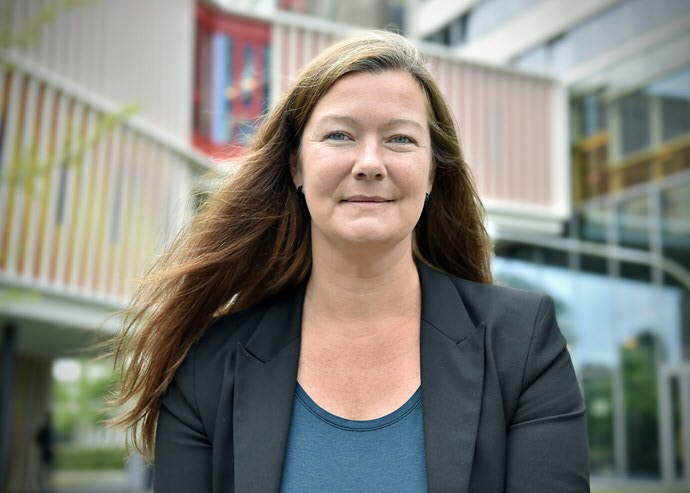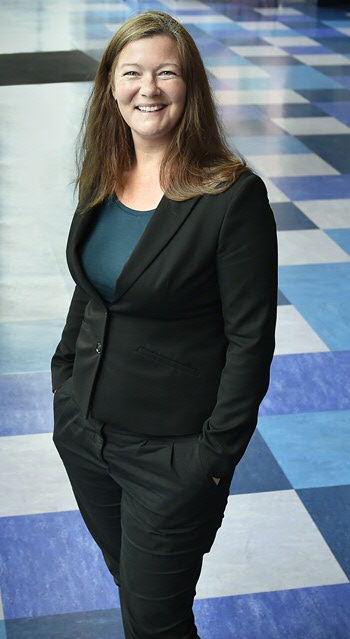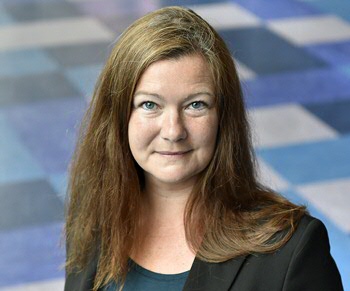‘Well-meaning government campaigns are dividing society’

Well-meaning messages convincing people to live a healthy lifestyle divide society into winners who do the ‘right thing’ and losers who do not. The government’s constant emphasis on health and lifestyle is creating a new social norm (‘thou shalt live a healthy and responsible life’) that unintentionally pits people against each other. Social psychologist Susanne Täuber worries that we will inadvertently end up with a very unpleasant society.
Text: Riepko Buikema / Communication
Täuber researched the effect of moralizing health campaigns on the ‘winners’, those who take exercise or don’t smoke and who thus already satisfy the health norm. ‘The constant message in government campaigns is that we all have our own choices. You are in control of your own behaviour. The result – so whether you look slim and healthy, are ill or super fit – is thus directly linked to your efforts. A mother who has just given birth and hasn’t yet regained her former figure is judged for this. In the eyes of the group that already satisfies the norm, she must be lazy, eat too much or lack discipline.’
Dangerous dynamic
In its attempts to create a self-sufficient ‘participation society’, the government is setting a dangerous dynamic in motion, Täuber warns. ‘The government has good intentions. But people who satisfy the present health norm unconsciously start to think: “I’m doing my best so why aren’t you? The money that the government spends on you because you’re so fat is the reason why our schools are underfunded.” There’s no point in trying to discuss the matter with such a major idiot. It’s awful. That’s not how we want to treat each other, is it?’

‘It makes me feel sad to see that these kinds of processes are also at play with the sick and the healthy. If you look at reality through a moralistic lens, you only see people who are doing the right and the wrong thing. If you think the result is equal to the effort, you conclude that someone who is ill has probably not made a big enough effort. Whereas most ill people bear very little responsibility for their own predicament. The moralizing messages turn our perception upside down. We end up with a very unpleasant society that no one wanted. That’s what I’m really afraid of.’
Excluding population groups
Just look around, says Täuber. Smoke-Free Generation signs are popping up all over town. ‘Of course it’s a fantastic ambition to make Groningen smoke-free. But with that well-meaning ambition you exclude a disproportionate number of poor people from the city centre because smokers are over-represented in that population group. Politicians and interest groups do not take this into account in the slightest.’
‘Another thing: the hugely addictive effect of tobacco has now been sufficiently scientifically proven. But the government continues to allow tobacco to be sold and even makes money on it. I would hang my head in shame before blaming smokers!’
Good intentions... or not
The threat of a social divide is a matter close to Täuber’s heart. For just under an hour she fires out one strongly worded example after another. Then she falls silent.
‘I always add that the government has good intentions. But whether I’m really convinced... Actually, I’m not so sure. I grew up in East Germany and was taught from a young age to view government with a healthy dose of scepticism. The way to hell is paved with good intentions. With its calls for a “participation society”, the Dutch government has overburdened the public with responsibility while the government runs to take cover.’

Really easy
‘There’s a lot of discussion these days about the amount of sugar in our food. The government then declares: we’re in discussions with industry. But nothing changes. This stance is very easy if you propagate the idea that the individual is responsible. After all, he chooses to buy that product in the supermarket when he should know that it will make him fat. In the meantime, it’s almost a full-time job to keep track of what is in which product and to make responsible choices. That can’t be right, can it? Sorry, I’m getting really...’ She doesn’t finish her sentence. She’s extremely indignant.
So what can be done? Will something have to give? ‘Yes, I’m more optimistic about that. Because the participation society has not produced what the government wanted. It simply doesn’t work to say: from now on you’re all responsible for yourselves. You’re on your own now. Some groups in the population have enough difficulty reading the ingredients on the label. How are they supposed to make “conscious” decisions?’
A new day, another chance
‘We must work together on health campaigns that are based on nuance and sensitivity, that motivate all groups to participate. Of course, people should feel they can take control over their own health. Otherwise they won’t even try to live a more conscious lifestyle. But if you don’t succeed straight away, you shouldn’t be labelled a bad person. We must all give ourselves a new chance every day. That’s a joint responsibility. We want a constructive form of society, don’t we?’
Further information
- See the full publication in Frontiers in Psychology: Moralized Health-Related Persuasion Undermines Social Cohesion
More news
-
10 February 2026
‘Regeneration starts where courage meets imagination’
-
09 December 2025
Are robots the solution?
